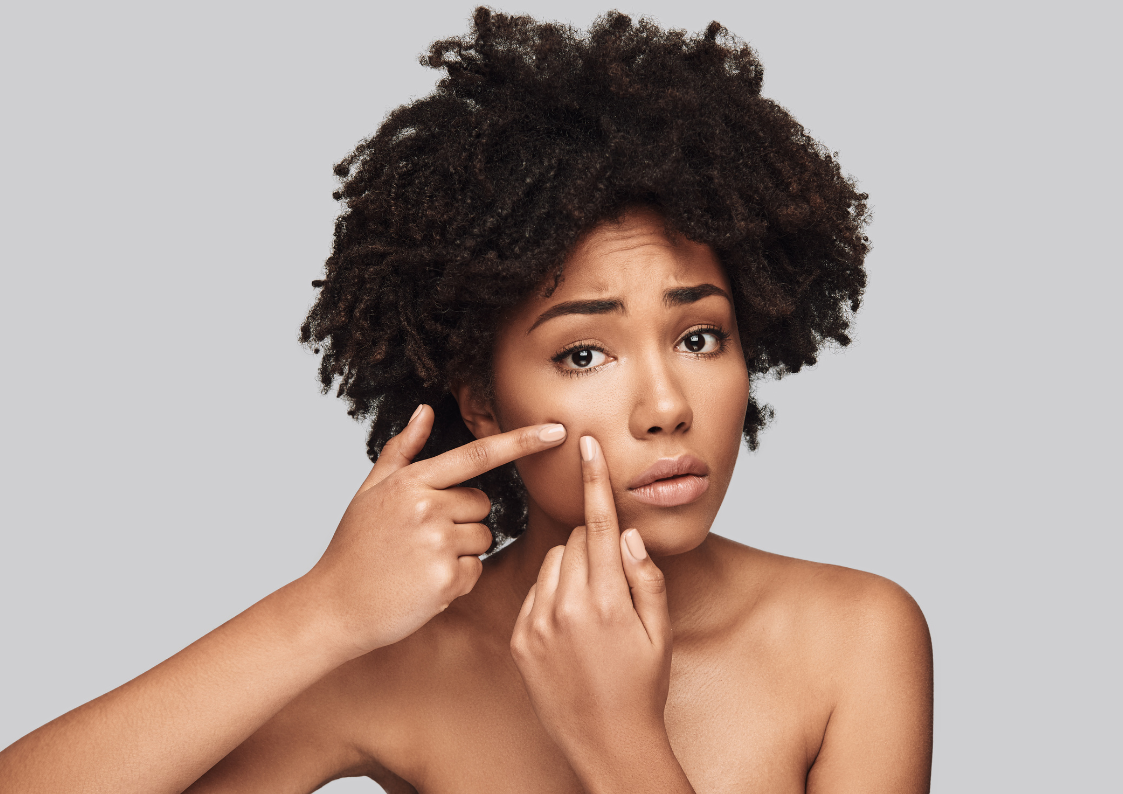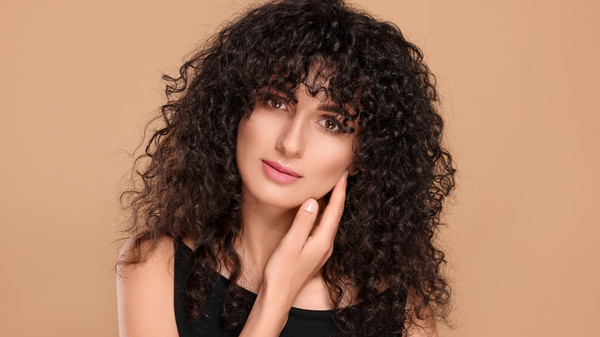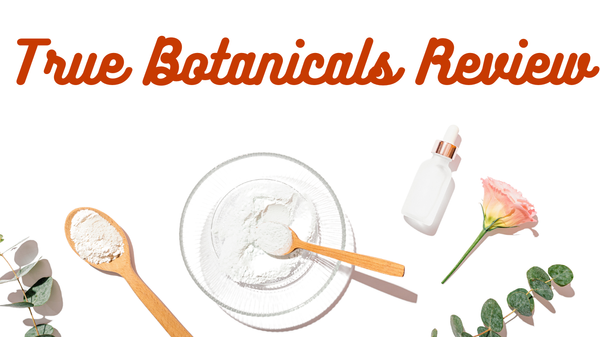Dispelling Myths: Why Head and Shoulders May Not Be Your Ultimate Acne Solution
It's a common belief that Head and Shoulders shampoo can be the ultimate solution for acne. Despite its popularity, the reality might disappoint you.

Are you tired of acne breakouts and have been resorting to Head and Shoulders as a miraculous remedy? It's a common belief that Head and Shoulders shampoo can be the ultimate solution for acne. Despite its popularity, the reality might disappoint you. Using non-comedogenic products incorrectly, such as this shampoo, can make your acne worse. In this article, you will find reliable information on treating 'Head and Shoulders acne'. Additionally, we will provide suggestions for healthier options. Understanding the science behind your skin problems is the first step to a clearer complexion.
What is Head & Shoulders?
Head & Shoulders is a renowned haircare product line offering both shampoos and conditioners. The brand is especially known for its anti-dandruff solutions. These products contain zinc pyrithione, which fights the fungus that causes dandruff. Regular use of Head & Shoulders shampoo helps in maintaining a clean, healthy scalp free from flakiness and itching.
The conditioner from Head & Shoulders complements its shampoo by providing additional benefits. It smoothens and detangles the hair, making it easier to manage. In addition, the conditioner adds back the oils shampooing takes away, keeping hair shiny and moisturized. Therefore, the Head & Shoulders product line is designed to promote a healthy scalp and beautiful hair, rather than being a remedy for acne. It's essential to understand the purpose and benefits of these products to use them effectively.
Which Head and Shoulders is Best For Acne?
Despite the widespread belief, no specific variant of Head & Shoulders shampoo is a foolproof solution for acne. When dealing with acne, remember that what works for your scalp may not work for your face.
Instead, you can try natural treatments at home or see a dermatologist for personalized skincare products. Aloe vera, tea tree oil, and honey are natural remedies that can soothe skin inflammation and fight acne-causing bacteria.
If home treatments aren't enough, a visit to the dermatologist can offer comprehensive solutions. Dermatologists can provide a deeper understanding of your skin type and the underlying cause of your acne. By knowing this information, you can choose skincare products that target your specific concerns better.
Natural skincare products, which are often gentler, can be a great alternative as they are less likely to irritate the skin. These substances help strengthen your skin's barrier, keeping it moisturized and better defending against acne. To sum up, while Head & Shoulders might aid in a clean, healthy scalp, it's not the go-to solution for acne. To get better results, use natural remedies, follow a dermatologist's advice, and use the right skincare products.
Does Research Prove Head & Shoulders Helps Acne?
Scientific research on Head & Shoulders as a remedy for acne is limited and inconclusive. The product has zinc pyrithione, which can treat dandruff and fight bacteria that cause acne. However, its efficacy for acne treatment is not unequivocally backed by research. The American Academy of Dermatology doesn't suggest it for acne. They prefer treatments with salicylic acid or benzoyl peroxide. Some people may see their acne get better with Head & Shoulders, but scientists don't all agree it works. Always consult a dermatologist or a skin care expert when dealing with acne.
Why Do Acne and Hair need to be treated differently?
Acne and scalp problems come from different bacteria, so they need different treatments. Acne is mainly caused by a bacterium called Propionibacterium acnes. This bacterium grows in blocked oil glands on the skin, causing inflammation and pustule formation. On the other hand, scalp infections such as dandruff or seborrheic dermatitis involve a yeast known as Malassezia.
The P. acnes bacteria break down sebum, the skin's oil, and create inflammatory by-products. This inflammation, along with the accumulation of dead skin cells and sebum, results in acne. Malassezia yeast worsens the scalp by breaking down scalp oils and making oleic acid, which causes dandruff.
Due to these different mechanisms, treatments for acne and scalp conditions differ significantly. Acne treatments try to decrease sebum, fight infection, and help skin cells renew. Such treatments often include salicylic acid, benzoyl peroxide, and retinoids. Anti-dandruff shampoos and scalp treatments aim to reduce Malassezia yeast and soothe the scalp. They often have ingredients like ketoconazole, zinc pyrithione, or selenium sulfide.
It's important to treat scalp and skin issues differently because they have different biological processes. Using a scalp product on acne might not help and could make it worse. Always consult with a dermatologist for personalized advice regarding skin and scalp health.
Who Can Benefit From Using Head & Shoulders products?
Head & Shoulders can help many people, especially those with scalp issues like dandruff or dermatitis. Our formula fights the Malassezia yeast, a common cause of dandruff, to relieve itchy scalps. People with oily hair may find Head & Shoulders products helpful. These products can control excess sebum production, which could cause scalp problems. People in humid areas or who are active and sweat a lot may find these products helpful for a clean scalp. Remember, Head & Shoulders has many benefits. If you have hair problems like brittle hair or scalp issues, see a dermatologist or trichologist for help.
Eliminate Acne the Easier Way:
Having acne can be really upsetting, but knowing what causes it and using the right skincare routine can help a lot. To manage acne, start with a regular skincare routine. Cleanse gently, exfoliate, and moisturize. Using non-comedogenic products can prevent pore clogging, thus reducing the risk of acne outbreaks. Adding salicylic acid, benzoyl peroxide, or retinoids to your skincare routine can help treat acne. These ingredients help exfoliate the skin, reduce inflammation, and control oil production. To keep your skin healthy, eat well, drink water, and get enough sleep. If you have severe acne, it's important to see a dermatologist for personalized treatment.
Step-By-Step Morning Natural Skincare Routine:
- Cleanse: Start your day by gently washing your face with a mild, natural cleanser. This step removes overnight buildup and prepares your skin for the rest of the routine.
- Tone: Apply a natural toner to your skin using a cotton pad or your fingers. A toner can help balance your skin's pH and hydrate your skin.
- Serum: Apply a hydrating or brightening serum. Look for natural ingredients like Vitamin C for brightening or hyaluronic acid for hydration.
- Moisturize: Use a lightweight, natural moisturizer to hydrate and protect your skin. If you have oily skin, opt for an oil-free natural moisturizer.
- Always apply broad-spectrum sunscreen as the last step in your morning routine. Even on cloudy days, UV rays can still damage your skin.
Remember, everyone's skin is different. It may take some trial and error to find the natural products that work best for you.
To-Do List For Your Acne
- Throughout the day, hands touch lots of dirt and bacteria, so don't touch your face.
- Wash Regularly: Wash your face twice daily to remove impurities, dead skin cells, and extra oil from your skin's surface.
- Stay Hydrated: Drink plenty of water every day. It helps to detoxify your body and keeps your skin fresh, glowing, and acne-free.
- Wear less makeup, especially when you have acne. Heavy makeup can clog your pores and lead to further breakouts.
- Avoid the Sun: The sun's ultraviolet rays can increase inflammation and redness. When you go outside, use sunscreen that won't clog pores or is made for acne-prone skin.
- Eat Healthy: A healthy diet can contribute to a healthier skin. To have a healthy diet, eat omega-3 fatty acids, fresh fruits, vegetables, lean proteins, and whole grains. Avoid processed foods and sugary foods.
Key takeaways:
- Consistent and thorough skincare routine is crucial for improved skin health.
- Regular cleansing helps remove dirt, excess oil, and dead skin cells that can clog pores.
- Incorporating a gentle exfoliator boosts skin cell turnover.
- Eating a healthy diet with fruits, vegetables, lean proteins, and whole grains helps your health and might improve acne.
- Foods high in zinc, vitamins A and E, and antioxidants are linked to lower acne rates.
- Stay away from processed and sugary foods. They can make your blood sugar spike and cause acne.
- Taking care of your body by sleeping well, staying hydrated, and managing stress can help your skin.
- Natural methods can complement medical treatments and contribute to overall skin health.
To sum up, Head & Shoulders is a great product for scalp and hair problems like dandruff. But it's important to remember why it was made. This product is designed to combat dandruff and maintain scalp health — not to treat acne or other skin conditions. Thus, it must be used as directed for the best results. Misuse or overuse can lead to unintended consequences such as skin irritation or imbalance in the skin's natural oils. Head & Shoulders is helpful for personal hygiene, but it's not a cure-all and should be used responsibly.
If you found this article useful, we invite you to explore more of our posts. We spend a lot of time finding different topics for our audience. These topics include health, travel, lifestyle, and wellness. To ensure you don't miss out on our latest insights and advice, consider subscribing to our blog. This way, you'll receive updates directly to your inbox, keeping you in the loop with all things related to leading a balanced and fulfilling life. Remember, your well-being is our priority, and we're here to accompany you on your journey towards health and happiness.




